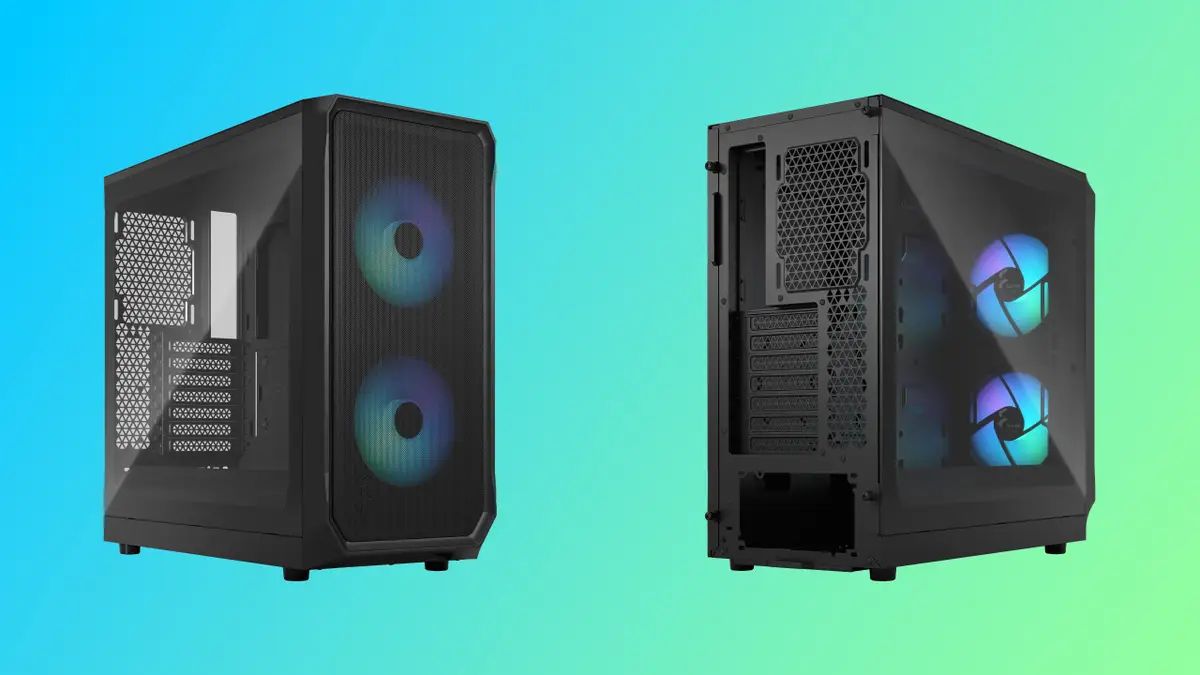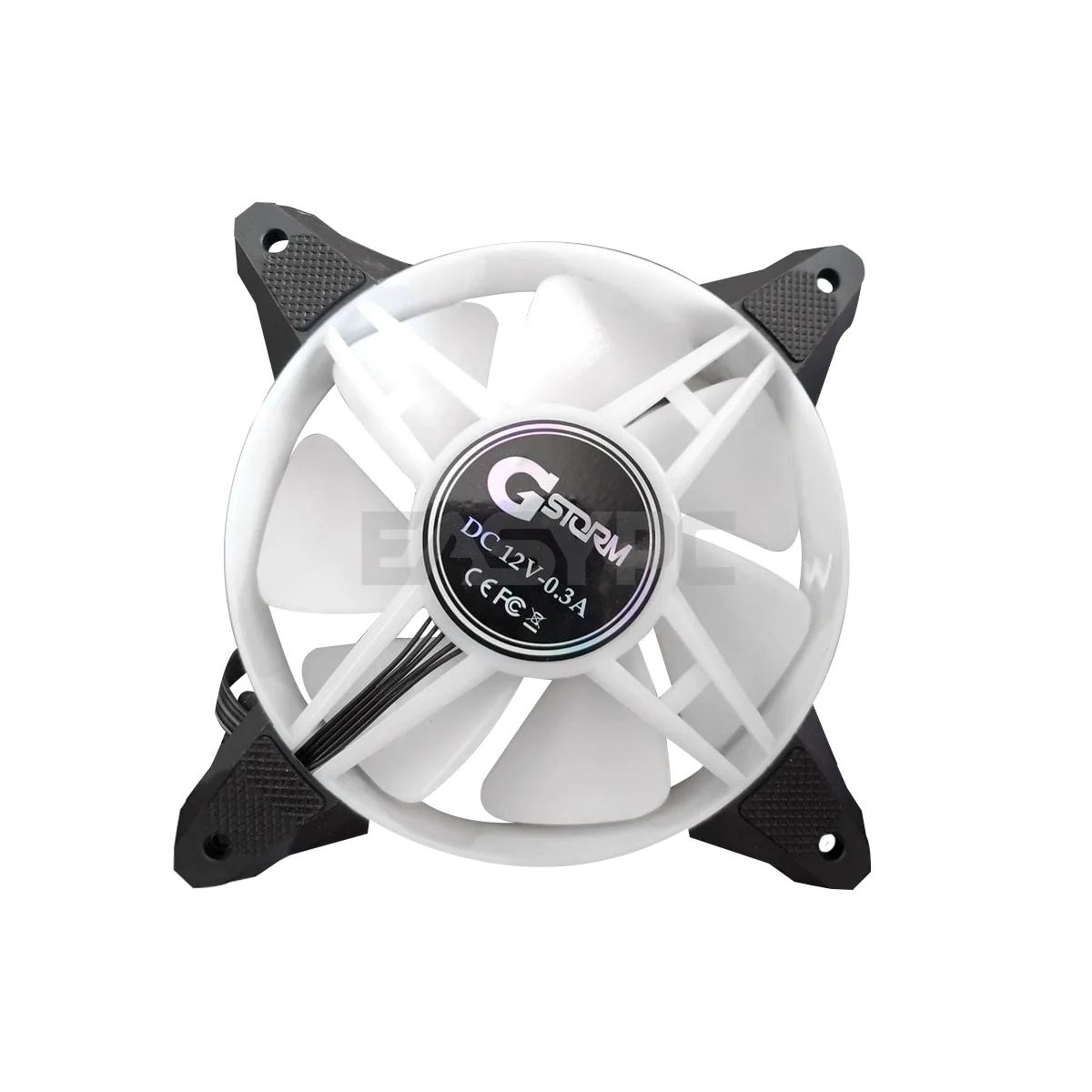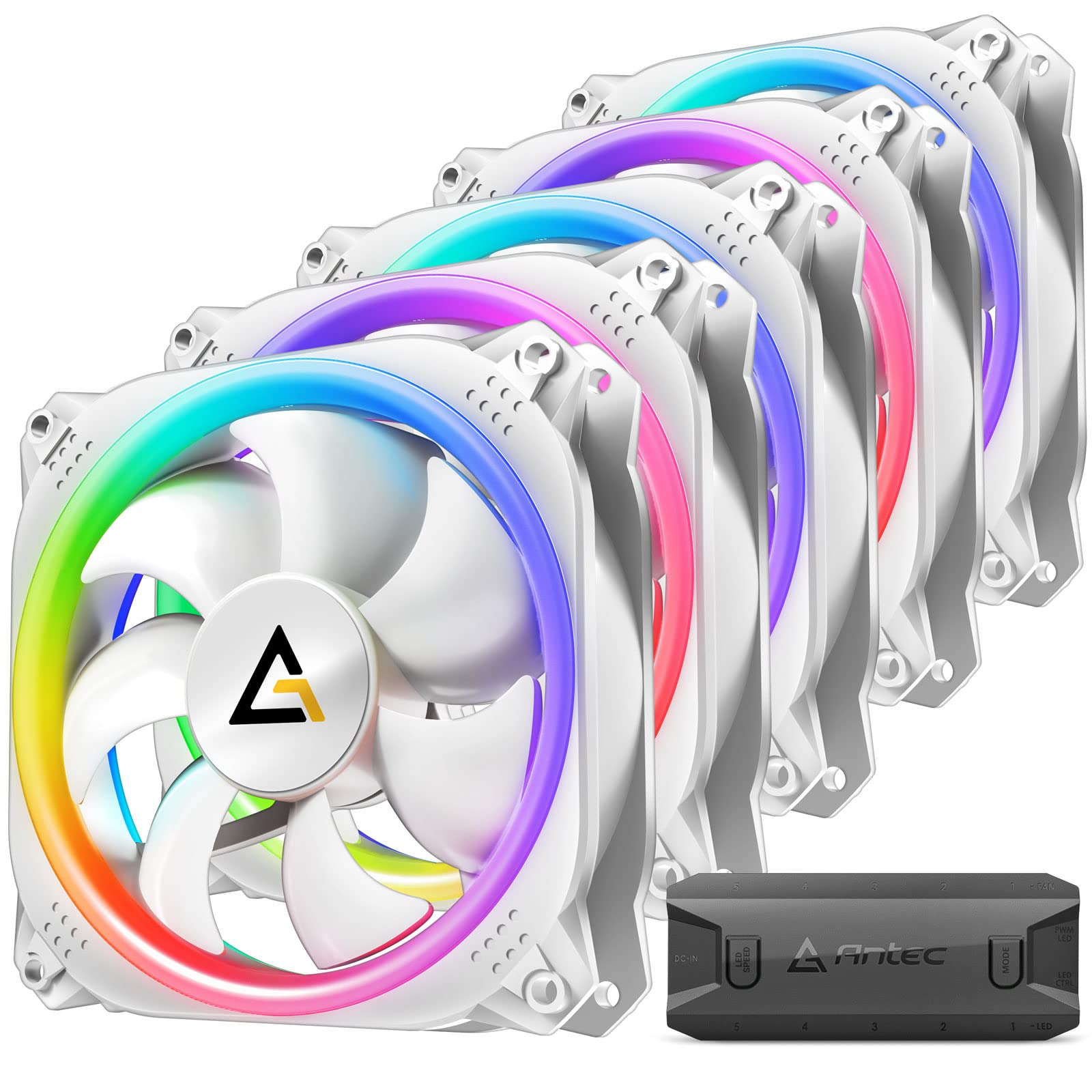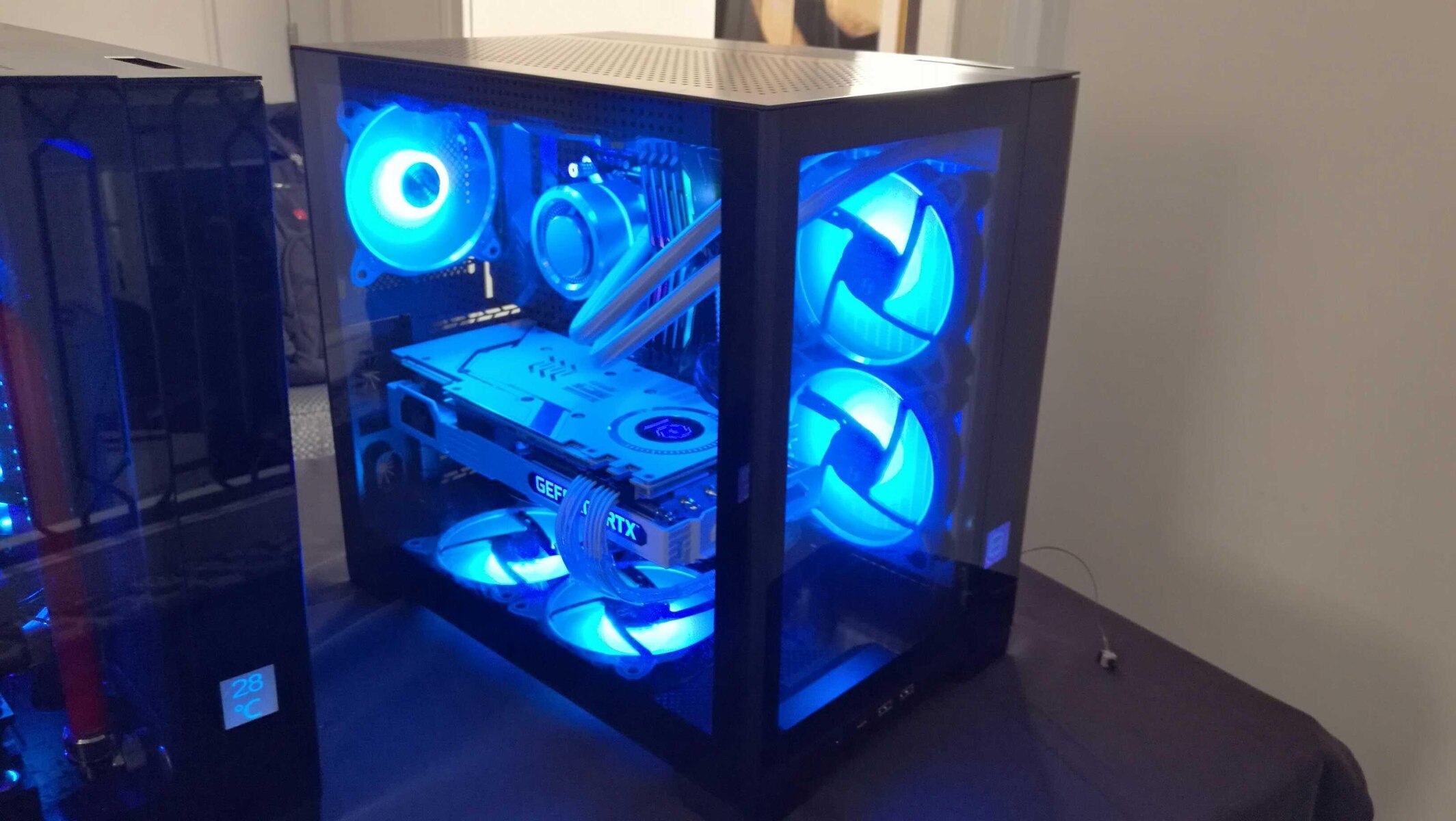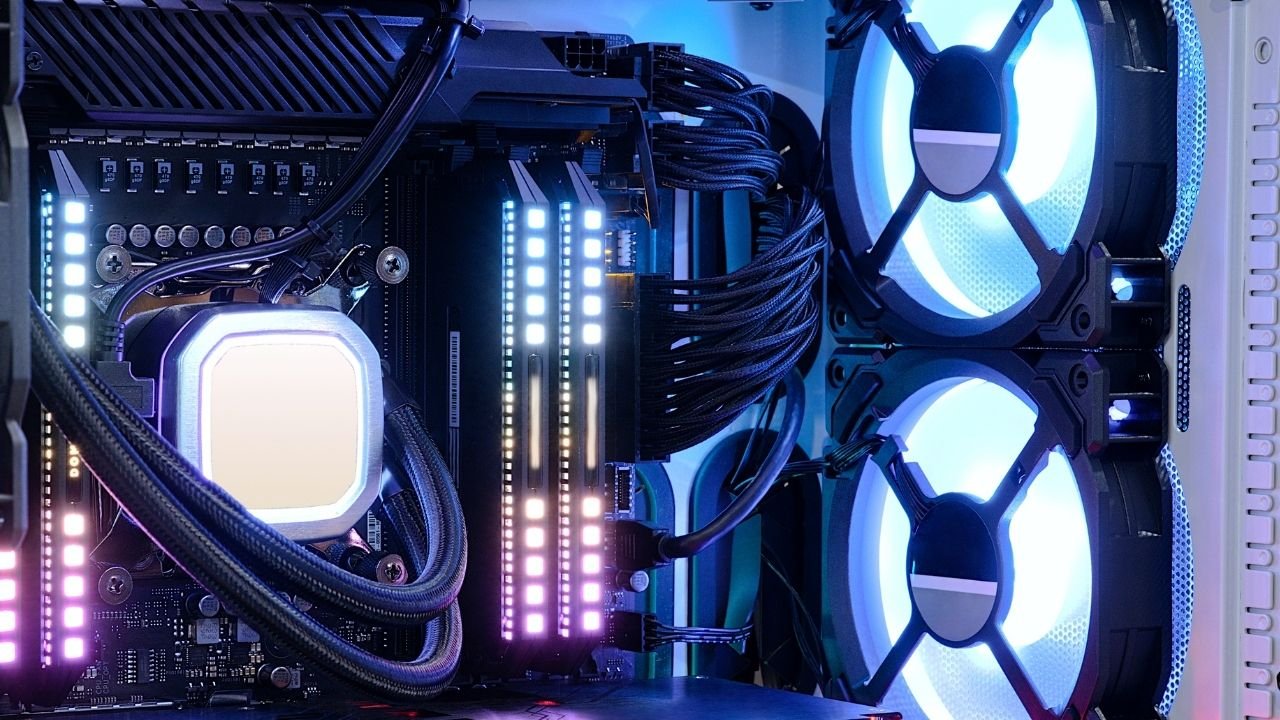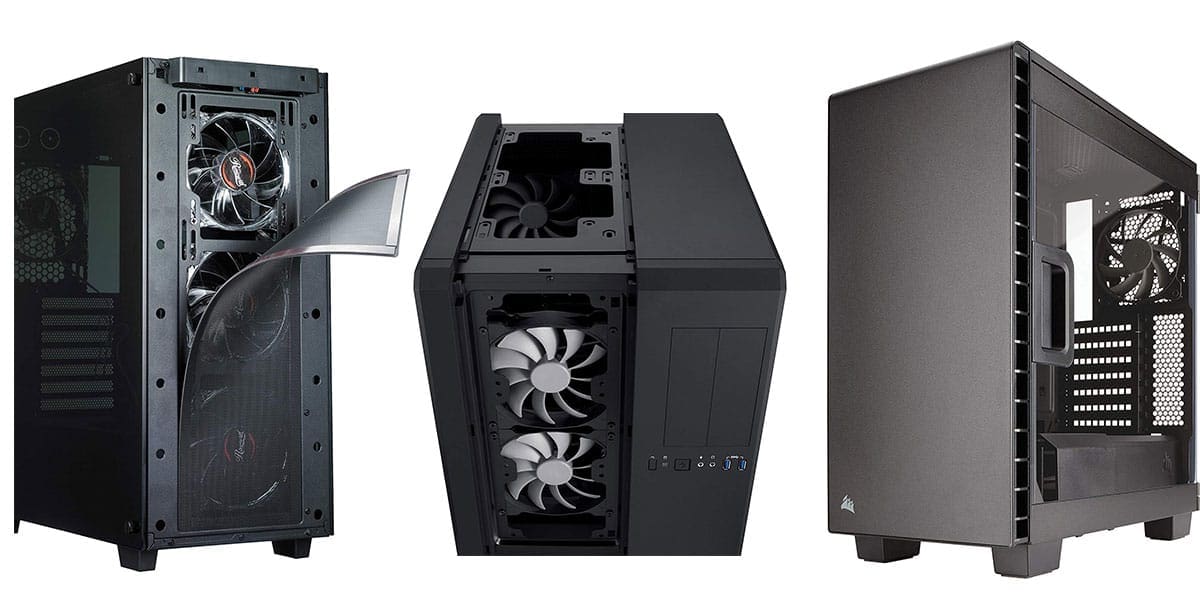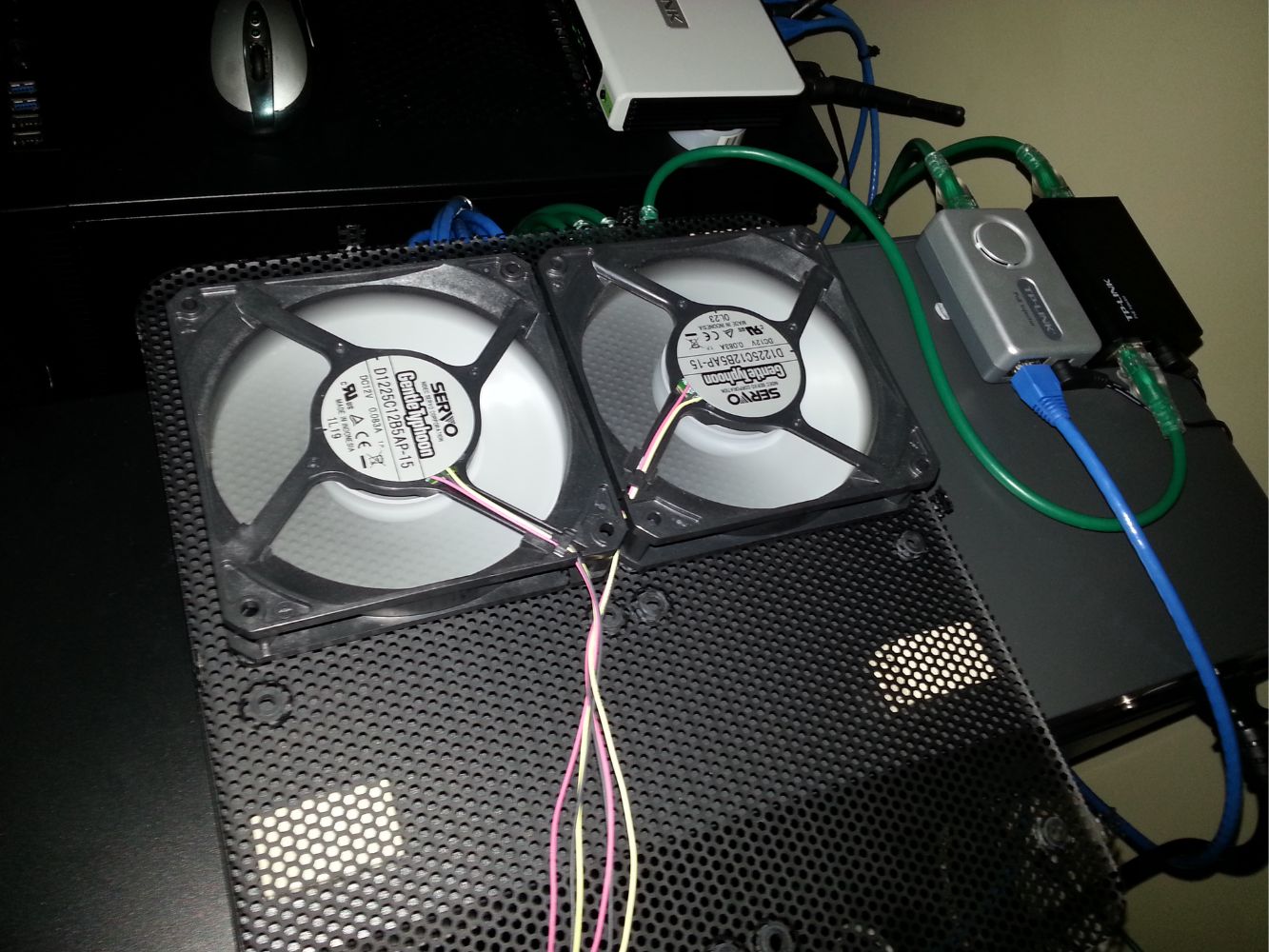Introduction
When building a computer, one of the crucial components that often gets overlooked is the PC case. While it may not be as flashy as the graphics card or as integral as the CPU, the case plays a vital role in housing and protecting all of the internal components.
A PC case not only holds all the hardware together but also provides proper ventilation and cooling to keep the system operating optimally. Additionally, it can contribute to the overall aesthetic appeal of the computer setup. With various sizes, shapes, and designs available in the market, there is a PC case for every type of build.
However, the cost of a PC case can vary significantly depending on several factors. This article aims to explore these factors in detail, allowing you to make an informed decision when it comes to purchasing a PC case that fits your budget.
In the next sections, we will delve into the different price ranges and factors that influence the cost of a PC case. Whether you’re on a tight budget, looking for a mid-range option, or willing to splurge on a high-end or specialized case, we’ve got you covered.
Factors that Affect the Cost of a PC Case
When it comes to the cost of a PC case, several factors come into play. Understanding these factors can help you determine the price range you should expect and make an informed decision. Here are the key factors that influence the cost of a PC case:
- Build Quality: The build quality of a PC case significantly affects its price. Cases with premium materials such as aluminum or tempered glass tend to be more expensive compared to those made from plastics. These high-quality materials offer better durability, sturdiness, and aesthetics.
- Size: PC cases come in various sizes to accommodate different motherboard form factors, such as Mini-ITX, Micro-ATX, and ATX. As the case size increases, so does the price. Larger cases often have more expansion slots, additional drive bays, and better cable management options.
- Aesthetics and Design: PC cases with unique designs, RGB lighting, and customizable features tend to be pricier. These cases cater to enthusiasts who prioritize visual appeal and want to showcase their build. Cases with sleek, minimalist designs may also come with a higher price tag due to their premium aesthetics.
- Cooling Options: PC cases with superior cooling options, such as multiple pre-installed fans or support for liquid cooling solutions, are typically more expensive. These cases provide better airflow, reducing the risk of overheating and ensuring optimal performance for your components.
- Expandability and Features: PC cases with additional features like modular drive cages, tool-less installation, dust filters, and ample space for cable management are often priced higher. These features provide convenience, ease of use, and future-proofing for upgrades.
- Brand and Reputation: The reputation of the case manufacturer can also impact the cost. Well-known brands that have a track record of producing high-quality cases and providing excellent customer support often come with a higher price tag.
By considering these factors, you can determine the features and specifications that matter most to you and allocate your budget accordingly. It’s essential to strike a balance between your requirements and the cost of the PC case.
Budget PC Cases
For those on a tight budget, there are plenty of affordable PC cases available that offer good value for money. Budget PC cases may have simpler designs and basic features but can still provide adequate functionality and protection for your components. Here are some key points to consider when looking for a budget-friendly PC case:
- Affordable Price: Budget PC cases are typically priced under $50. These cases provide a cost-effective solution for those who want a functional and reliable case without breaking the bank.
- Basic Build Quality: While budget cases may not have premium materials, they are often made from sturdy, reliable plastics that offer satisfactory durability. However, they may lack some of the high-end finishes and rigidity found in more expensive cases.
- Compact Size: Budget PC cases tend to be smaller and designed for standard motherboard form factors like Micro-ATX and Mini-ITX. These cases are ideal for compact builds and setups with limited space.
- Simplified Features: Budget cases may have fewer bells and whistles compared to higher-priced options. However, they still offer essential features such as front panel USB ports, support for multiple storage drives, and decent cable management options.
- Adequate Cooling: While budget cases may not come with advanced cooling options, they generally provide adequate airflow with pre-installed fans. Additional fans or liquid cooling solutions can be added later if desired.
- Brand Options: Several reputable brands offer budget PC cases that provide decent performance and reliability. It’s essential to research customer reviews and feedback to ensure you choose a reliable brand.
When opting for a budget PC case, it’s important to manage expectations. While you may not get the premium features and design of more expensive cases, a budget case can still offer a practical solution for your PC build.
Mid-Range PC Cases
If you’re looking for a PC case that offers a balance between affordability and features, mid-range options are worth considering. These cases provide a step up from budget options, offering better build quality, more advanced features, and enhanced aesthetics. Here are the key characteristics of mid-range PC cases:
- Price Range: Mid-range PC cases typically fall in the range of $50 to $150. While they may cost more than budget cases, they offer improved features and higher-quality materials.
- Enhanced Build Quality: Mid-range cases often feature better build quality with a mix of durable materials like steel, tempered glass, or aluminum. This results in improved sturdiness and longevity, providing additional protection for your components.
- Flexible Size Options: Mid-range cases come in various sizes, accommodating different motherboard form factors like ATX, Micro-ATX, and Mini-ITX. This allows you to choose a case that suits your build requirements.
- Improved Features: Mid-range cases offer a range of features such as ample space for cable management, tool-less installation for drives, dust filters, and additional front panel ports. These features enhance convenience and make building and maintaining your PC easier.
- Enhanced Cooling: Mid-range cases often come with better cooling options, including additional fan slots, support for liquid cooling, and improved airflow designs. This helps keep your components cool and ensures optimal performance.
- Aesthetically Appealing: Mid-range cases prioritize aesthetics, offering sleek designs, tempered glass side panels, and RGB lighting options. These cases allow you to showcase your build while maintaining a visually pleasing setup.
- Reputable Brands: The mid-range PC case market is filled with offerings from well-known brands that have established themselves in the industry. These brands provide reliable customer support and have a track record of delivering quality products.
Mid-range PC cases strike a good balance between affordability and features, making them a popular choice for many builders. With improved build quality, enhanced features, and attractive designs, they can elevate your PC build without breaking the bank.
High-End PC Cases
For enthusiasts and gamers who want the best of the best, high-end PC cases are the perfect choice. These cases offer top-notch build quality, advanced features, and exceptional aesthetics to cater to the most demanding users. Here are the key characteristics of high-end PC cases:
- Premium Price Range: High-end PC cases often come with a higher price tag, typically ranging from $150 to $500 or more. The premium price reflects the top-quality materials and advanced features that these cases offer.
- Exceptional Build Quality: High-end cases are built to last, with superior materials such as aluminum, tempered glass, or a combination of both. These cases offer unparalleled sturdiness, rigidity, and protection for your components.
- Spacious and Flexible: High-end cases provide ample space for even the most complex builds, accommodating various motherboard sizes, multiple GPUs, and extensive cooling setups. They offer exceptional expandability and ease of customization.
- Advanced Features: High-end cases are equipped with a plethora of advanced features, including modular drive bays, extensive cable management options, integrated liquid cooling support, and advanced fan control systems. These features provide maximum flexibility and convenience.
- Superior Cooling Options: High-end cases excel in their cooling capabilities, with support for multiple radiators, additional fan mounts, and optimized airflow designs. This ensures efficient heat dissipation and keeps your components running at peak performance.
- Stunning Aesthetics: High-end cases prioritize aesthetics, often featuring sleek designs, tempered glass panels, customizable RGB lighting, and unique visual elements. These cases are designed to be the centerpiece of your setup, providing a show-stopping display.
- Leading Brands: High-end PC cases are typically produced by elite brands known for their exceptional quality and innovative designs. These brands have a reputation for delivering premium products and excellent customer support.
High-end PC cases cater to those who want the very best in terms of build quality, features, and aesthetics. While they come at a higher price, their exceptional performance and stunning design make them an investment worth considering for enthusiasts and professionals.
Specialized PC Cases
While most PC cases cater to standard builds, there are specialized cases available for specific use cases or unique requirements. These specialized PC cases offer unique features, designs, and form factors to accommodate specific needs. Here are some examples of specialized PC cases:
- SFF (Small Form Factor) Cases: SFF cases are designed for compact builds, often using Mini-ITX motherboard form factors. These cases prioritize space-saving and portability, making them ideal for LAN parties or setups with limited space.
- HTPC (Home Theater PC) Cases: HTPC cases are designed to blend seamlessly with home theater setups. They typically resemble audiovisual equipment, offering a sleek and unobtrusive appearance alongside features like multimedia connectivity and quiet operation.
- Rackmount Cases: Rackmount cases are designed for server racks and data centers. They come in various sizes to accommodate standard rack dimensions and offer features like hot-swappable drive bays, redundant power supplies, and improved cooling options.
- Open-Air Test Bench Cases: Open-air test bench cases allow easy access to hardware components for testing and benchmarking purposes. These cases prioritize airflow and easy component swapping, providing a convenient setup for enthusiasts and professionals.
- Water-Cooling optimized cases: These cases are specifically designed to accommodate custom water-cooling loops. They feature ample space for radiators, reservoirs, and tubing routing options, allowing enthusiasts to create advanced liquid cooling setups.
- Server Cases: Server cases are built to house and manage multiple server-grade components. They often offer features like hot-swap drive bays, redundant power supplies, and excellent cable management options for optimal server performance and reliability.
Specialized PC cases cater to specific needs and requirements, ensuring that your build aligns perfectly with your intended use. These cases often come with unique features and designs that are tailored to their specific purpose, providing a specialized and optimized user experience.
Tips for Choosing the Right PC Case
Choosing the right PC case is crucial for a successful build. It’s important to consider your needs, preferences, and budget when making a decision. Here are some tips to help you choose the right PC case:
- Determine your Build Requirements: Consider the size of your motherboard, the number of components you plan to install, and any specific features you need. This will help narrow down your options and ensure compatibility.
- Consider Airflow and Cooling: Look for a case that provides adequate airflow with proper ventilation and fan options. If you plan to overclock or use powerful components, prioritize cases with good cooling potential.
- Check for Expandability: Consider future upgrades and expansion. Look for cases with multiple drive bays, PCIe slots, and cable management options to accommodate future components and accessories.
- Evaluate Build Quality: Look for cases made from high-quality materials like aluminum or tempered glass, as they offer better durability and protection for your components.
- Consider Aesthetic Appeal: Choose a case that reflects your style and fits the overall aesthetic of your setup. Consider features like RGB lighting, tempered glass panels, and customizable options for a visually appealing build.
- Take Noise Levels into Account: If noise is a concern, opt for cases with sound-dampening features, quiet fans, and airflow designs that minimize noise levels.
- Read Reviews and Feedback: Research customer reviews and feedback to get insights into the performance, quality, and customer satisfaction of the cases you are considering. This can help you make an informed decision.
- Set a Realistic Budget: Determine your budget and look for cases that offer the best value within that range. Remember to allocate funds for other components and accessories as well.
- Consider Brand Reputation: Choose cases from reputable brands known for their quality products and excellent customer support. Established brands often have better warranty policies and a proven track record.
- Check for Cable Management: A case with good cable management options helps keep your build clean and organized, improving airflow and ease of maintenance.
By considering these tips, you can find a PC case that best suits your needs, preferences, and budget. Remember that the PC case is not only a functional component but also a part of your overall setup, so choose wisely to optimize your computing experience.
Conclusion
Choosing the right PC case is a critical decision when building a computer. It not only encompasses the physical housing and protection of your components but also contributes to the overall functionality, aesthetics, and cooling of your system. Throughout this article, we have explored various aspects of PC cases, including the factors that affect their cost, the different price ranges available, and specialized options for unique requirements.
Whether you’re on a tight budget, looking for a mid-range option, or willing to invest in a high-end or specialized case, there is a PC case out there to suit your needs. By considering factors such as build quality, size, aesthetics, cooling options, and reputation, you can make an informed decision that aligns with your preferences and requirements.
Remember to evaluate your own build requirements, thinking about factors such as motherboard size, component compatibility, and future expansion plans. Take into account factors like airflow, cooling potential, cable management options, and noise levels to ensure optimal performance and a clean build. Additionally, read reviews and feedback from other users to gain insights into the reliability and satisfaction of different PC case options.
Ultimately, the right PC case will not only protect and house your components but also enhance the visual appeal of your setup. Choose a case that reflects your style and fits seamlessly into your overall aesthetic. Whether you prioritize a sleek and minimalist design, RGB lighting, or a unique form factor, there are numerous options available to meet your preferences.
By following the tips outlined in this article, you can confidently select a PC case that meets your needs, fits your budget, and enhances your computing experience. So, go ahead and embark on your PC building journey with the knowledge and understanding you have gained, and create a system that is both functional and visually appealing.







